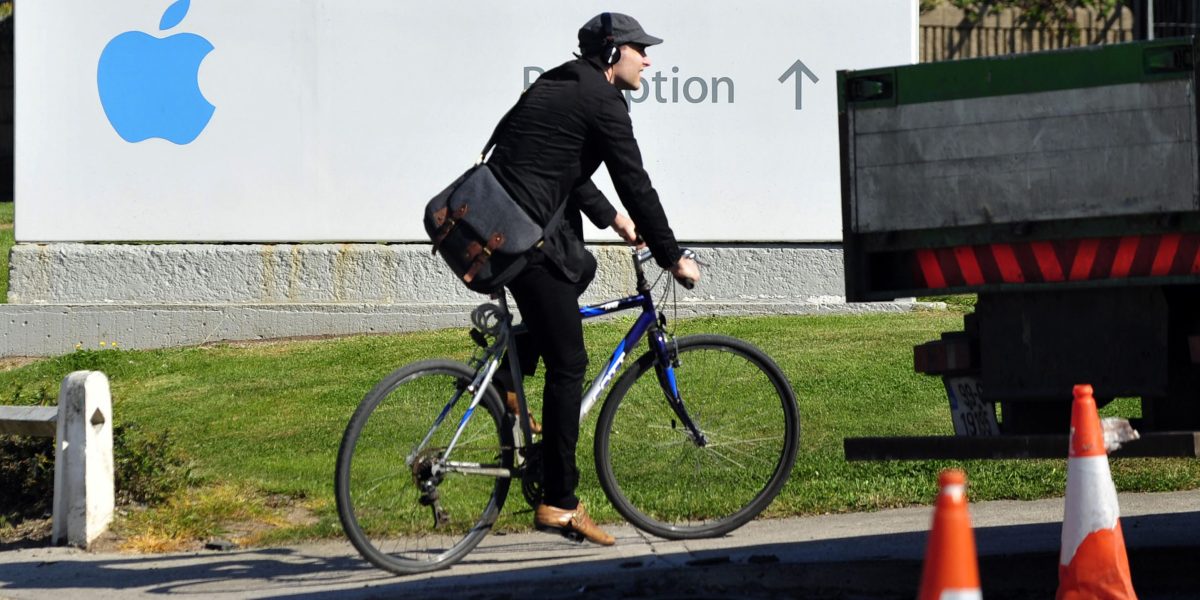
Ireland’s €13 billion windfall from a European court tussle with Apple looks on the surface like a boost to the country’s already-inflated coffers. But, in reality, it has created a new headache for an economy with more money than sense.
On Monday, the EU ruled Apple had to pay Ireland €13 billion in unpaid taxes, concluding an eight-year battle for the bloc that received little help from Ireland.
The money adds to Ireland’s substantial government surplus without leaving it any nearer to figuring out how it could spend those funds and what it means for the country’s deeply entrenched relationship with U.S. tech giants.
How Ireland got here
Ireland attracted many tech companies at the start of the century after the country lowered its corporation tax rate to 12.5%.
After being hobbled by the global financial crash and receiving €67.5 billion in loans from the EU, the country doubled down on attractive incentives for tech groups while enacting painful austerity measures on its citizens.
The investment created an economic windfall for Ireland that wasn’t everything it appeared.
Irish GDP grew by more than 26% in 2016 after Apple restructured to place patents and intellectual property in the country, leading Nobel Prize-winning economist Paul Krugman to label the growth figures “Leprechaun Economics.”
The country’s statistics organization had to create a new measure of economic growth due to the inflated accounts of tech groups in the country, which were paying minimal taxes.
The Central Statistics Office introduced modified gross national income, which, among other things removes the net factor income of redomiciled public companies, including Apple and Google.
In 2023, Irish modified GNI (Gross National Income) was just 55% of its €510 billion GDP output.
Still, the country’s government has praised the tech windfall’s economic benefits, notably infrastructure improvements in Ireland and high-value job creation.
But the country’s tech ecosystem is facing a reckoning.
The EU’s ruling against Apple was a landmark judgment following a battle that whirred from 2016, when Apple’s contributions to the Irish economy came into focus.
Ireland spent €10 million of government funds on legal fees defending Apple’s tax situation in country before the EU ruled against the tech giant.
Meanwhile, the country doesn’t quite know what to do with the economic benefits it has gained from its past special relationship with U.S. tech.
Barriers to spending
Before the EU court ruled against Ireland, the country was already trying to figure out what to do with a mammoth €8.6 billion surplus.
The Irish government has plenty of pain points that could do with a multi-billion euro injection. The Fine Gael and Fianna Fáil coalition also have the incentive of an election due next year to woo voters. But the figures are eyewatering even for Ireland’s inflated coffers, as are the timelines for improvement.
An all-island rail review, which includes neighboring Northern Ireland, says a €37 billion investment was required over 25 years to update the island’s network.
The country also needs to unleash a major housebuilding project, as four people are born for every new home built in the country, and affordability declines faster than many major economies like the U.S. and the U.K.
The main Irish opposition party, Sinn Féin has pledged €39 billion to a housing plan if it is elected next year.
Detractors have argued that a spending spree risks overheating an economy still trying to recover from generationally high inflation. Others have argued the funds should be set aside for a rainy day when it is urgently needed, with the nearly €70 billion of state aid in 2010 still fresh in policymakers’ minds.
Ireland announced last year the creation of a sovereign wealth fund, a la Norway, which was expected to grow to more than €100 billion by the mid-2030s. Ireland intends to reinvest its vast economic reserves in future pension provisions and long-term infrastructure needs.
Danny McCoy, the CEO of Ibec, Ireland’s main business lobby, warns that future business growth is a risk to Ireland, but he argues that this only increases the urgency to invest now.
“Ibec and our members are extremely optimistic about the resources available to the next government and what can be achieved,” McCoy wrote.
“However, it is conceivable that future governments may not have the same level of resources available as the next one. Therefore, now is the time to address the challenges that have been the Achilles’ heel of growth, such as the long and drawn-out nature of infrastructure delivery, poor public services, and housing issues.”
The Apple issue also weighs on Ireland’s mind. The FT reported that other European countries with an interest in Apple may stake a claim to the tax judgment brought by the EU.
It may raise questions about Apple’s tax arrangements with other U.S. tech companies, particularly Google.
The Irish government has vast levels of corporation tax in part to thank for its huge surplus, which has been growing for the last few years. The government argues this is volatile and unlikely to grow at its previous pace. That decline could be expedited by wary multinationals.
What happens next?
The Irish government hasn’t opposed the EU’s ruling, and has pointed out it is only of historical significance as its current tax policies fall in line with the bloc’s requirements.
The government may grumble behind the scenes at the potential pyrrhic victory of a €13 billion windfall that reminds tech giants that Ireland isn’t the tax haven it was for the last two decades.
However, there is also an argument that the longer Ireland puts off much-needed infrastructure developments, the less attractive it becomes as a hub for companies looking for sustainable growth in the country.
“The biggest risk to multinationals now in Ireland, is they leave because our transport infrastructure and housing costs are so abysmal,” Irish economist David McWilliams said on his podcast.
Data Sheet: Stay on top of the business of tech with thoughtful analysis on the industry’s biggest names.
Sign up here.

